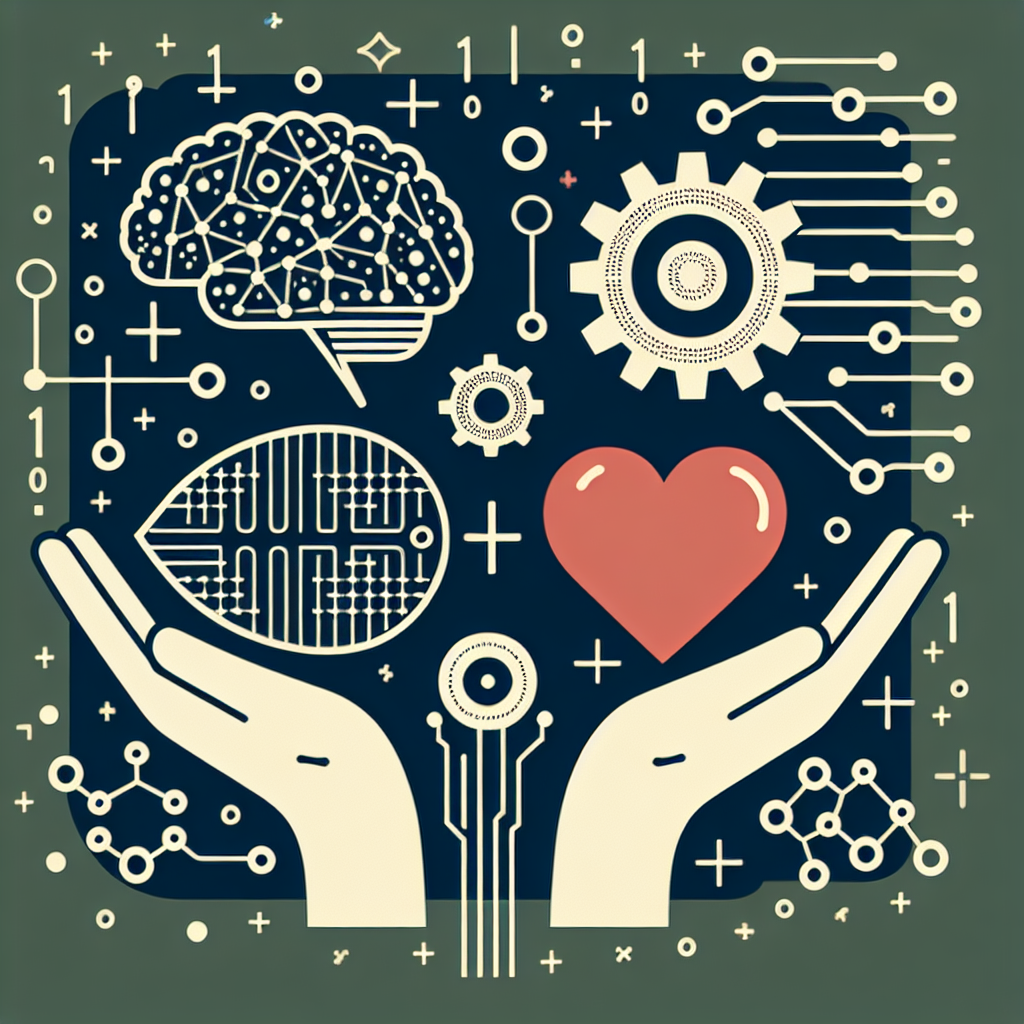Artificial Intelligence (AI) has been revolutionizing various industries, from healthcare to finance to transportation. One area where AI has shown great potential is in the field of mental health. By using AI technologies, mental health professionals are able to address stigma and increase access to care for those in need.
Stigma surrounding mental health has long been a barrier to individuals seeking help. Many people feel ashamed or embarrassed to talk about their mental health issues, leading to a reluctance to seek treatment. This stigma can be even more pronounced in certain communities, where mental health issues are often viewed as a sign of weakness or moral failing.
AI can help address this stigma by providing a more private and confidential way for individuals to seek help. For example, chatbots powered by AI can provide 24/7 support and guidance to individuals in need of help. These chatbots can offer a non-judgmental listening ear and provide information on available resources and treatment options. By using AI technologies, individuals can seek help without fear of judgment or stigma.
In addition to addressing stigma, AI can also increase access to mental health care for those who may not have easy access to traditional mental health services. In many rural or underserved areas, there may be a shortage of mental health professionals, making it difficult for individuals to receive the care they need. AI technologies can help bridge this gap by providing virtual counseling services and telemedicine options for those in need.
For example, AI-powered apps and platforms can connect individuals with licensed therapists and counselors through video calls or messaging services. These virtual counseling sessions can provide individuals with the support they need, regardless of their location. By increasing access to care through AI technologies, more individuals can receive the help they need to improve their mental well-being.
One of the key advantages of using AI in mental health care is the ability to personalize treatment plans for individuals. AI technologies can analyze large amounts of data, such as a person’s medical history, symptoms, and treatment outcomes, to create personalized treatment plans that are tailored to the individual’s needs. This personalized approach can lead to more effective treatment outcomes and better overall mental health for individuals.
In addition, AI can also help mental health professionals identify individuals who may be at risk for developing mental health issues. By analyzing patterns in behavior and language, AI algorithms can detect early warning signs of mental health issues, allowing for early intervention and prevention strategies. This can help reduce the burden of mental health issues on individuals and society as a whole.
Despite the many benefits of using AI in mental health care, there are also concerns and challenges that need to be addressed. One of the main concerns is the potential for bias in AI algorithms. If not properly trained and validated, AI algorithms can perpetuate existing biases and stereotypes, leading to disparities in care for marginalized populations. It is important for mental health professionals to carefully evaluate and monitor AI technologies to ensure that they are providing equitable and unbiased care to all individuals.
Another challenge is the need for regulations and guidelines to govern the use of AI in mental health care. As AI technologies continue to evolve and become more integrated into mental health services, it is important to establish clear guidelines and standards to protect the privacy and confidentiality of individuals seeking care. Regulations should also address issues such as data security, informed consent, and accountability in the use of AI technologies in mental health care.
Despite these challenges, the potential for AI to transform mental health care is immense. By addressing stigma, increasing access to care, and personalizing treatment plans, AI technologies can help improve the overall mental well-being of individuals in need. With careful oversight and regulation, AI can be a powerful tool in the fight against mental health issues.
FAQs:
Q: Can AI replace human therapists in mental health care?
A: While AI technologies can provide valuable support and guidance in mental health care, they are not meant to replace human therapists. Human therapists offer a level of empathy, understanding, and emotional support that AI technologies cannot replicate. AI can complement human therapists by providing additional support and resources, but the human touch is still essential in mental health care.
Q: Is AI in mental health care secure and confidential?
A: It is important for mental health professionals to ensure that AI technologies used in mental health care are secure and confidential. This includes using encrypted communication channels, secure data storage, and strict privacy policies to protect the confidentiality of individuals seeking care. Mental health professionals should also inform individuals about the risks and benefits of using AI technologies in their care and obtain informed consent before using AI technologies.
Q: How can individuals access AI-powered mental health services?
A: Individuals can access AI-powered mental health services through various platforms and apps that offer virtual counseling, chatbot support, and telemedicine options. These services are often available through mental health organizations, healthcare providers, and online platforms. Individuals can also speak with their healthcare provider about using AI technologies in their mental health care and explore available resources in their area.
Q: What are some examples of AI technologies used in mental health care?
A: Some examples of AI technologies used in mental health care include chatbots for mental health support, virtual counseling platforms, predictive analytics for early detection of mental health issues, and personalized treatment plans based on individual data. These technologies can help individuals access care, receive support, and improve their mental well-being through AI-powered solutions.

